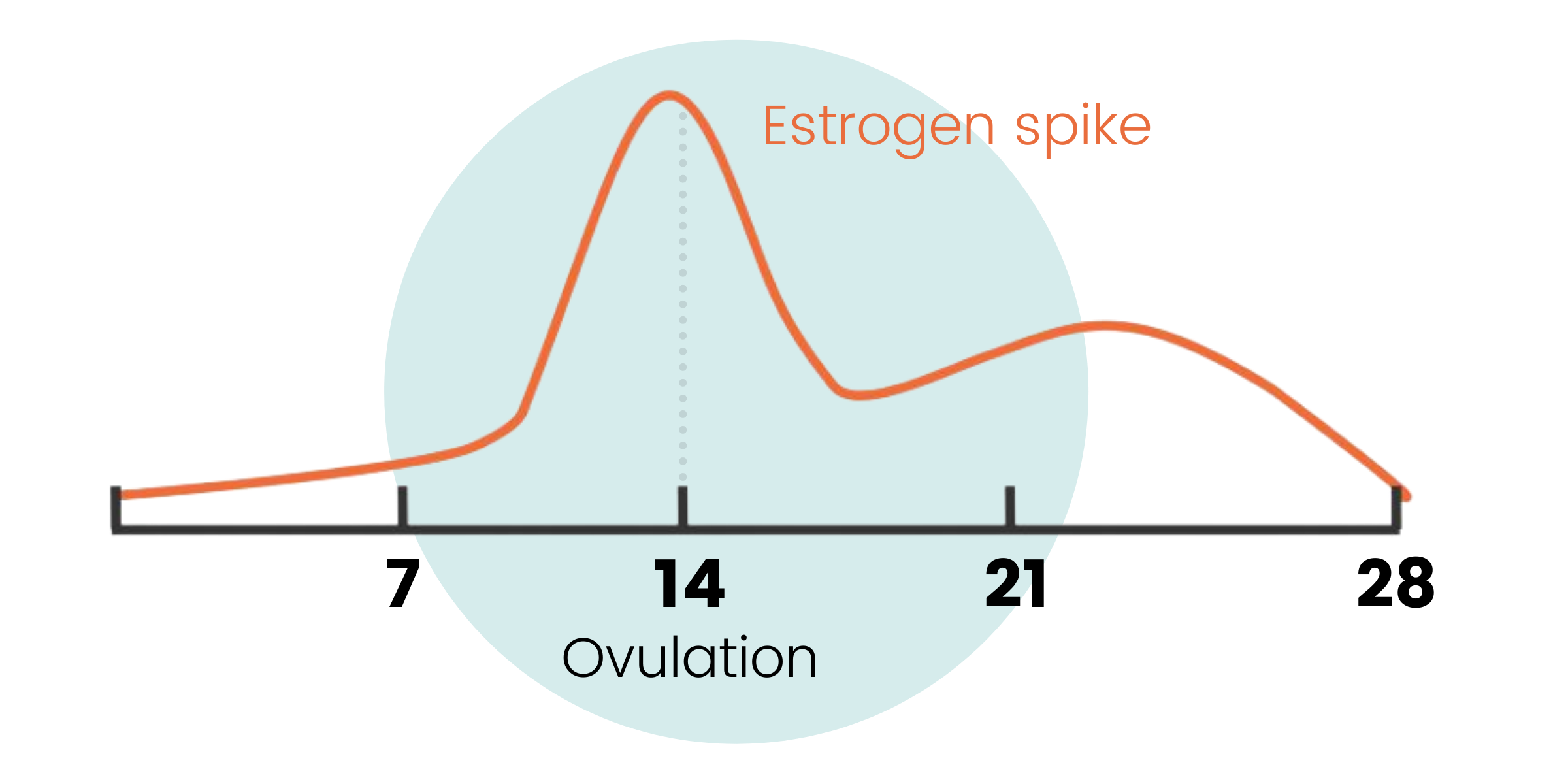PCOS
Polycystic ovarian syndrome (PCOS) is the most common cause of infertility in women, affecting 10% of women in their reproductive years.
In PCOS the ovaries are unable to release an egg each month (ovulate). Symptoms include irregular or heavy periods, dark hair growth on the face and body, acne, weight gain and painful enlarged ovaries filled with cysts.
PCOS is due to the imbalance of three important hormones - estrogen, testosterone and insulin.
Estrogen.
Normal levels of estrogen (also spelt oestrogen) are essential for ovulation.
Each month multiple eggs begin to develop in the ovaries. Estrogen levels increase and peak mid way through the menstrual cycle. This spike in estrogen triggers the most dominant egg to be released. The remaining eggs are not needed, and receive a signal to break down.
Estrogen is made in the ovaries from another hormone — testosterone.
Testosterone.
Although many people think of it as a male hormone, women produce testosterone too. In fact, they produce 3 times more testosterone than estrogen, and it’s very important for bone health, energy levels, concentration and libido.
Some of this testosterone is used to make estrogen.
Estrogen is made from testosterone.
To ensure enough testosterone is converted to estrogen women need optimal levels of a 3rd hormone - insulin.
Insulin.
Insulin is directly impacted by what we eat. It’s a fat storage hormone that’s released when blood sugar levels rise.
If we regularly eat foods that spike blood sugar, insulin levels remain high. Over time, some cells stop responding as well to the high insulin, and the body has to increase levels even higher - this is called insulin resistance.
In the ovaries, prolonged high insulin inhibits the conversion of testosterone to estrogen (by blocking the enzyme aromatase). This leads to PCOS.
High insulin blocks estrogen production.
PCOS
Almost all women with PCOS have high insulin levels.
Less testosterone is converted to estrogen, so estrogen levels are lower. There isn’t enough estrogen mid cycle to trigger ovulation and the breakdown of unneeded eggs. Instead, all of the developing eggs stay in the ovaries forming cysts.
Because less is converted, testosterone levels are higher in PCOS. This is responsible for other symptoms like dark hair growth, male pattern hair loss or acne.
It may be difficult to lose weight because high insulin tells the body to store fat.
What next?
Avoiding blood sugar spikes allows insulin to fall, enabling the ovaries to convert more testosterone to estrogen. This is essential to reducing symptoms and improving fertility.
So, to improve PCOS, we need to know which foods spike blood sugar.
Although there are some obvious ones (think lollies and chocolate), some of the other foods may surprise you.



